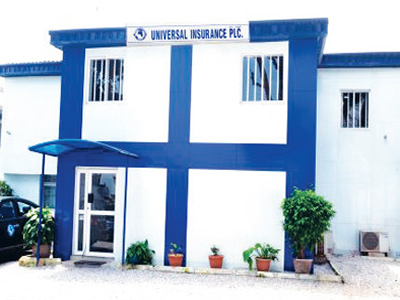Universal Insurance Plc has remained in doldrums due to challenging operating environment. CHRIS UGWU writes
Nigerian insurance sector has continued to wrestle with reduced premium growth due to economic crunch, higher impairments from oil & gas exposures, and increasing regulatory capital requirements. The industry has fallen victim to the persistent macroeconomic headwinds that had weakened consumer purchasing powers and eroded earnings of companies despite that it had witnessed tremendous changes as a result of more reforms embarked upon by the National Insurance Commission (NAICOM). These include the full implementation of risk-based supervision, introduction of market conduct reforms, claims settlement reforms as well as financial inclusion, among others.
The initiatives, which are geared towards enhancing transparency in the industry and improving the general perception and image of insurance business in Nigeria, are yet to begin to record desired results.
In spite of the measures, the insurance sub-sector is still in trance. The sub-sector has been battling a variety of challenges as they work to improve profitability, grow and compete. Thus, these challenges, which also include negative perception, have continued to weigh down on bottom line of most of the companies in the sub sector. Contrary to the expectation that the Nigerian insurance industry would be the next growth sector, the performance of the industry, in spite of considerable improvement, remains far below optimal.
Nigerian insurers face the same challenges as their counterparts in other emerging markets. As a developing country, the challenges for Nigerian insurance companies will also include enforceability of insurance regulations. Market watchers attributed the inability of the sub-sector to rise above the nominal level to crisis of confidence. Universal Insurance Plc is one of the companies that have had a fair share from the dwindling fortunes of the sub-sector; the insurer has continued to remain at a loss in the recent times safe for the first quarter of 2018.
The harsh operating milieu did not also spare the movement of the share price, as it has remained below 50 kobo courtesy of new price methodology that was implemented early this year. The firm had ended the financial year 2016 in a positive note, as the company saw a profit after tax of N92.692 million during the year from a loss after tax of N186.851 million in 2015.
It had also remained majorly on the negative position since 2017 financial year. The firm’s share price, which closed at 50 kobo per share in […]
